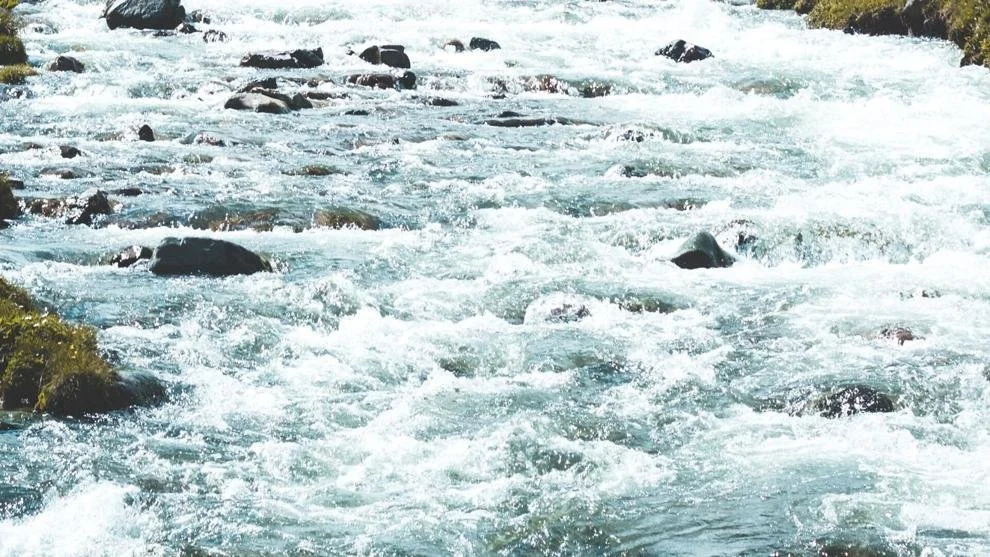If you were to win the election, what would you do to ensure the development of sustainable, additional, water supply and treatment for the region in order to allow for further growth, both from a business/industrial and population perspective? Water is Canada's most precious natural resource, and protecting our region’s water is a high priority for me, and for our Liberal team. We have 20% of the world's freshwater reserves, and water is essential to our well-being and economy.
'It's a mess': Canal leaks causing problems for farmers
Before the 2023 water season, contractors hired by Alberta Agriculture and Irrigation made repairs to Lethbridge Northern Irrigation District (LNID) canal’s lining that had be leaking for several years. But after the repairs were made and the water turned on in April, it was discovered more leaks had been created by the repair work.
Canmore water ban lifted, Epcor fixing leaks
The ban on non-essential water use in Canmore and the surrounding area has been lifted, allowing residents to resume normal water use. On Wednesday afternoon, the Town of Canmore and Epcor thanked residents for complying with the ban that had been in place since Friday. Residents and businesses in Canmore, Harvie Heights and Deadman’s Flats were asked to refrain from using water for things like laundry, watering lawns, washing cars, washing driveways or sidewalks, or from filling hot tubs or pools. That reduced usage helped restore water levels in the Grassi Reservoir, which is now up to “appropriate” water levels.
Extra $1.3M needed for Three Rivers water expansion
The cost to expand the water and sewer system in the eastern P.E.I. community of Three Rivers is coming in about 30 per cent more expensive than first budgeted. Quotes for the project came in higher than anticipated, said Dorothy Macdonald, interim CEO for the town's services. Despite the unexpected expense, she said the town is ready to get started. "The project is a priority for the town's rivers and currently we have in-hand the ability to work toward 70 per cent of the project," she said. "We're also going to work very hard in the next little while to get that extra 30 per cent, so that we are finishing this project to 100 per cent capacity by the end of next summer."The town originally projected a $4.7 million cost for the project, which will extend the current water and sewage system about 2.5 kilometres from the old border of Montague, into the old community of Brudenell and up to MacDonald Road. It is now looking at closer to $6 million. The 80 new customers who will be using the new expansion will cover most of the extra cost. It was important to her to ensure current customers using the utility did not completely cover the cost of the program, Macdonald said.
UCalgary shines bright as a global sustainability leader
As a national leader — ranking in first place — UCalgary provides sustainable management of water and sanitation for all. The university aims to demonstrate exemplary stewardship of water quality and use. With water conservation built into the environment, landscaped areas across campus act as stormwater infiltration basins where rainwater can be retained.
Southwestern Public Health to begin weekly beach water testing
Beginning this week, water testing undertaken by Southwestern Public Health will help the community stay more informed on the swimming status of beaches in the area. If a beach is found to have high levels of E.coli bacteria in the water, a warning sign will be posted at the beach indicating swimming is not recommended.
Yellowknife looks at increasing some water and sewer rates
In a news release on Monday, the city said “at least 20 years” had passed since the rate structure was last fully reviewed. According to the city, a report found that trucked water and sewer fees only cover 75 percent of the cost to the city. City Hall says the best practice would be to charge 90 to 110 percent of the cost. The 190-page report, conducted by utility rate design consultants InterGroup and billed as only an interim version, recommends phasing in new rates over three years, beginning in January 2024.
This grad’s economics degree will add up to better environmental policies in Canada and beyond
Meghan Lim loves both nature and numbers, and hopes that by combining those passions, she can help protect the planet. With an eye to using her skills to support climate action, the newly minted economist graduates June 13 with a master of science in agricultural and resource economics — a degree she considers a perfect fit for her desire to make a difference through conservation and sustainable development. “I found my niche in the interface of conservation and policy and dealing with numbers and statistics,” Lim says about the program, offered through the Faculty of Agricultural, Life & Environmental Sciences (ALES).
Canadian Prairies farmers try to adapt to a warming world
Most canola crops are grown without requiring irrigation in the Prairies, the nation's agricultural heartland spanning nearly 1.8 million square kilometers (695,000 square miles). But the region is sensitive to droughts, whose frequency and severity have been steadily increasing. In this region, explains Phillip Harder, a hydrology researcher at the University of Saskatchewan, in Saskatoon, "crop production relies on water that accumulates throughout the year." In other words, snow that accumulates over winter and soaks into the ground during the spring thaw. But howling winds over fields that stretch as far as the eye can see have been blowing away much of that snow of late.
LNID’s farmers nearly out of water and hope for their crops this season
Before the 2023 water season, the Main Headworks Canal, located in the Lethbridge Northern Irrigation District (LNID), was shut off so Alberta Agriculture and Irrigation could repair a liner that had been leaking for a few years. The district said when it was turned on in late-April, construction-related leaks were discovered extending the shutdown indefinitely, leaving farmers with just a fraction of their normal irrigation. They are now being told that the Keho Reservoir is also running low.
UK Watchdog Bans Water Company Advert Over Pollution Record
The UK’s advertising regulator banned an advert by Anglian Water Group Ltd. because it didn’t reflect an environmental record that includes serious pollution incidents. The TV advert from Anglian featured new pipes and large tanks being built to help protect nature, the environment and provide water security, with a voiceover saying “everything they do today is for tomorrow.” While the water company was taking positive environmental steps, the advert omitted the negative impact of sewage discharges and Anglian’s below-target performance, the Advertising Standards Authority said in a ruling.
Dress code for a happier planet
Consumers are increasingly worried about climate change, the fashion industry’s contribution to pollution and plastics and its terrible human rights track record. Fashion adds 10 per cent of the globe's greenhouse gas emissions and this will rise to 50 per cent if left unchecked. It takes 700 gallons of water to make one cotton T-shirt and that water is polluted by the time it is returned to the water table. Ninety-seven per cent of our clothes are made in the Global South by people working in slave-like conditions who are paid less than their country’s living wage.
Water Dance raises awareness in Gananoque
Gananoque welcomed a global event to its waterfront community this past weekend. On Saturday at Confederation Park, at 11 a.m., 10 members of the community, varying in age from 58 to 82, were all decked out in white clothing and danced to numerous soothing songs. The Gananoque River glowed and flowed in the background. The point was to bring awareness to the audience about water, including the Gananoque River, and the importance of its health and impact on communities. The Gananoque River is frequented by algae in the summer months.
Drinking a gallon of water per day: Does it really help with weight loss and fitness?
Dr. Kevin Huffman, a physician from Vermilion, Ohio, told Fox News Digital that drinking a gallon of water per day has health benefits that can aid weight loss and fitness goals — but the practice has limits. "Water intake helps boost metabolism while keeping you hydrated throughout the day," Huffman said. "Also, consistent hydration helps you feel satiated for longer parts of the day, reducing your food consumption and facilitating weight loss."
Waterloo Region’s water conservation bylaw in effect
Using water from a rain barrel, watering can or other non-municipal sources does not fall under this restriction. The water conservation bylaw is in effect every year from May 31 to Sept. 30. Before it was enacted, water use spiked by 50 per cent during the summer months, putting a strain on the region’s water supply.
Record rainfall in Toronto leads to flooding concerns, watershed warning
The Toronto Region Conservation Authority (TRCA) warned people to stay away from the Lower Don River after rising water levels near the Don Valley Parkway and Bayview Avenue due to the heavy rainfall. Water levels remain dangerously high throughout the city as Toronto saw two-thirds of a month’s rainfall in 18 hours. Pearson Airport saw 31 mm of rainfall on Monday, breaking the previous daily record for June 12 that was set in 1954.
Japan nuclear plant conducts tests before discharging treated radioactive wastewater into sea
The operator of the wrecked Fukushima nuclear plant began tests on Monday of newly constructed facilities for discharging treated radioactive wastewater into the sea, a plan strongly opposed by local fishing communities and neighboring countries. The tests at the Fukushima Daiichi nuclear power plant use fresh water instead of the treated water, operator Tokyo Electric Power Company Holdings said. Plant workers examined pumps and emergency shutdown equipment at the newly constructed seaside facility, which will dilute the treated water with large amounts of seawater. The diluted water then enters an undersea tunnel and is released into the ocean about 1 kilometer (0.6 miles) from the coast.
Dry weather leads to low water levels near Edmonton, residents asked to conserve
Businesses and people living west of Edmonton are being asked to limit water use amid hot, dry weather. The City of St. Albert, Alta., asked residents and business owners to conserve water Monday. The three reservoirs that store water for community use and fire protection are at “near critical” levels, according to the city.
N.W.T. gov't calls for emergency dredging of Hay River harbour
The N.W.T. government has put out a call for tenders for an emergency dredging program in the Hay River harbour. It's been over a decade since the harbour was last dredged and last year residents of Hay River said the sediment buildup in the harbour was the worst they'd seen. Barges belonging to the government's marine transportation service (MTS) and even a Coast Guard vessel were held up on sand bars.
Toxic Mash: Air, Water, Food and Climate Change
The callous exploitation of natural resources underlines the context that has created a mash-up of toxins – in the air we breathe, the water we drink and the food we ingest. Consider the state of water. Data published by UN Water show that over 2 billion people, or roughly a quarter of the world population, lack “safely managed” drinking water and 2.3 billion live in water-stressed countries. Groundwater accounts for a major share of human consumption and is threatened by contamination by fertilisers, pesticides, industrial and mining wastes, petroleum products and solid waste landfills. A Lancet report reveals that water pollution was responsible for 1.4 million premature deaths in 2019. The World Bank has observed that shallow groundwater in every populated region should be considered at risk of pollution.





















